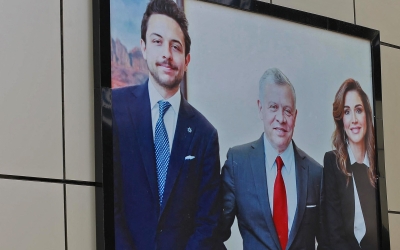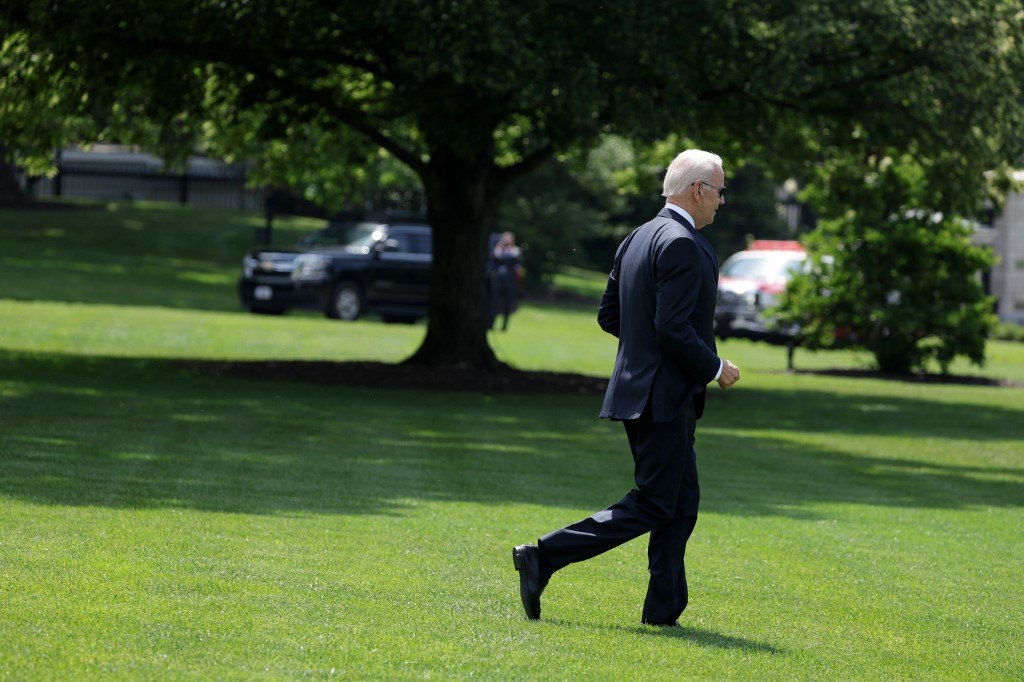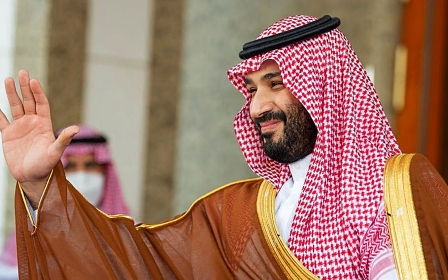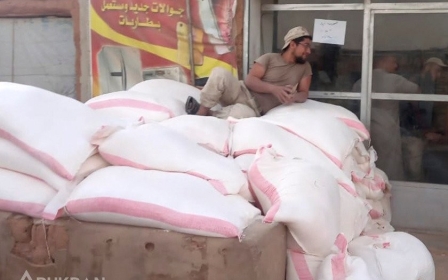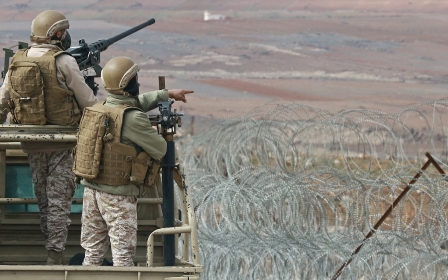What do Saudi Arabia and Jordan want from crown prince's visit?
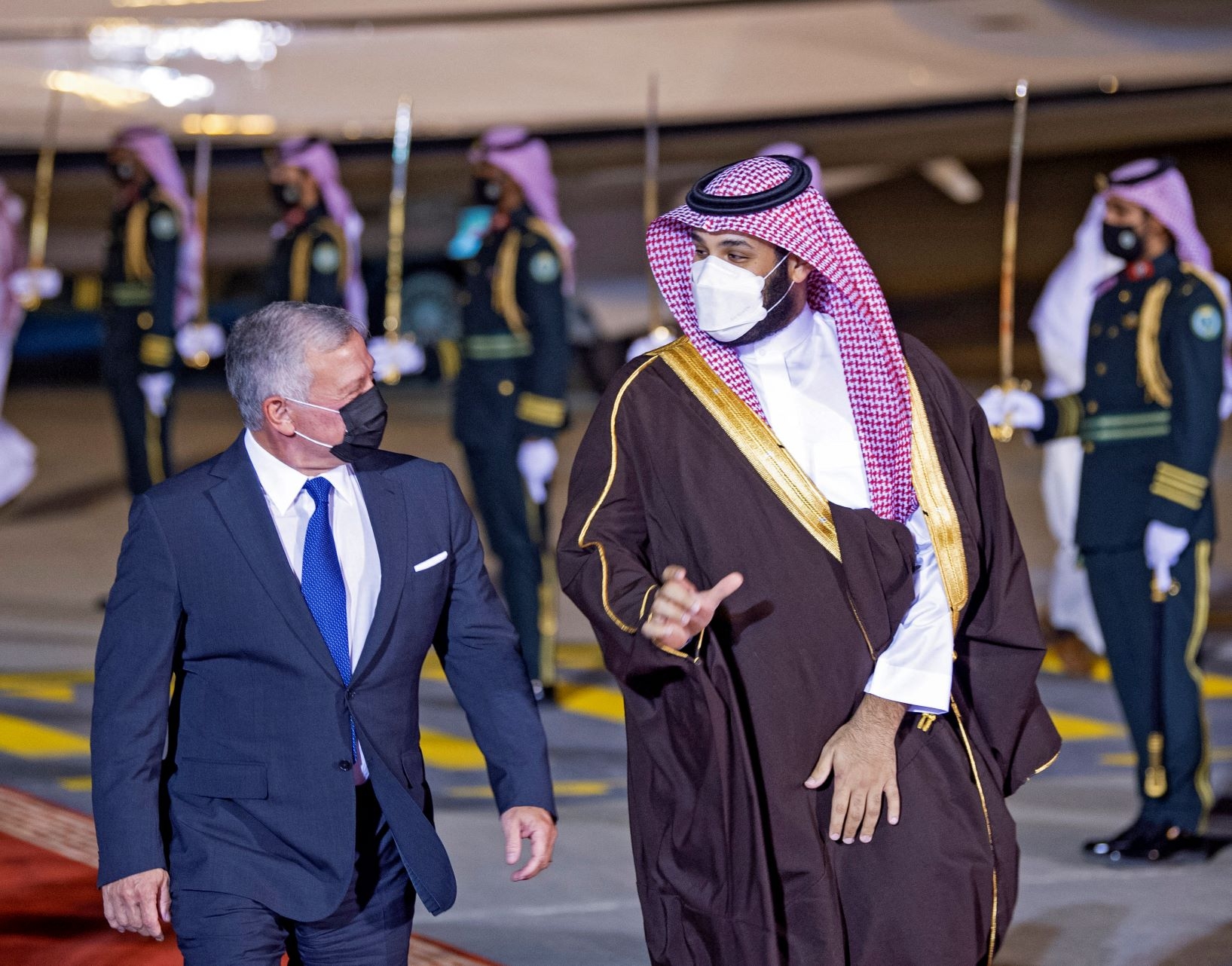
Saudi Arabia's Crown Prince Mohammad Bin Salman started his three-country regional tour late on Monday that will include Egypt, Jordan, and Turkey.
Reportedly, the goal of this tour is to "coordinate efforts to stand up to Iran and to discuss political issues".
While Saudi Arabia's relations with its other regional neighbours are hardly blemish-free, the visit to Jordan is set to dredge up a number of issues that have caused tensions between the two Arab monarchies.
Among the causes of tension between the two countries has been the struggle over Jordanian custodianship of Islamic and Christian holy sites in Jerusalem, and purported Saudi links to a coup attempt that almost destabilised Jordan last year.
At the same time, Jordan's government is keen to boost economic ties between the two countries, as spiralling inflation threatens to cause chaos in the kingdom.
New MEE newsletter: Jerusalem Dispatch
Sign up to get the latest insights and analysis on Israel-Palestine, alongside Turkey Unpacked and other MEE newsletters
The last grant that Saudi Arabia gave to Jordan was four years ago in April 2018, when Jordan's treasury received $50m.
Saudi Arabia had previously committed to support Jordan over five years to the tune of $250m, to be provided yearly in $50m installments.
Amman hopes to persuade the Saudis to deliver further financial aid to help in proposed "modernisation" efforts targeting the kingdom's economy. The cost of the plan is reportedly $4bn annually for 10 years.
Political commentator Hassan Barari told Middle East Eye that the visit of the Saudi crown prince to Jordan was also aimed at "coordination" ahead of a visit by US President Joe Biden, set for mid-July.
"Biden wants to inaugurate a Sunni coalition against Iran while also integrating Israel in this coalition in order to the make the Israeli occupiers an element in the stability of the region instead of being a troublesome element," he said.
Jordan has a tactical interest in cutting down Iran, Barari added, but the strategic cost was not in Jordan’s favour.
Though Jordan has recognised Israel since 1994, the kingdom's role in championing the rights of the Palestinians and protecting the Jerusalem holy sites could end up being severely weakened if it works to include its Saudi neighbour in an anti-Iran front at a time when Israeli repression of Palestinians has reached new heights.
"It means the need to integrate Israel at a time of the disappearance of the two-state solution and the denial of the rights of the Palestinian people," he said.
"This weakens Jordan, a champion of the two-state solution, and will leave Jordan without a negotiating card. This would be a gift to the Israeli occupiers and will encourage them to further encroach on the Palestinian territories in order to make them more Jewish."
Jeddah Summit
On the bilateral level, there is a large Saudi population in Jordan and there is a decent turnover in bilateral trade between the two countries.
But like much of the world, Jordan is being rocked by rising fuel and food prices, exacerbated by the war in Ukraine, and has yet to recover from the impact of the Covid-19 pandemic.
Khaled Shneikat, the head of the Jordanian Political Science Society, expects that any new Saudi investment would most likely be in energy and the construction of a modern railway system from Aqaba to the new Saudi city of Neom.
This will be music to the ears of the Saudi prince, who has been spearheading this project and whose country has been a major investor in Jordanian road infrastructure.
'Saudi Arabia is aware of the importance of Jordan and the need for its stability in an unstable region'
- Khaled Shneikat, Jordanian Political Science Society
"The visit will aim at strengthening bilateral relations and possibly open the door for bigger economic cooperation, including getting Saudi investment. A possible direct grant to help Jordan deal with the effects of the pandemic and the Russian war on Ukraine might happen," said Shneikat.
"Saudi Arabia is aware of the importance of Jordan and the need for its stability in an unstable region. Jordan is a buffer to the Saudis from Syria and Israel and that is why it is crucial for Saudis to ensure that security in Jordan is protected. Recent fighting with drug smugglers and extremist groups with the Jordanian Army have been noticed by the Saudis."
Bin Salman’s visit comes ahead of the Jeddah Summit, expected in mid-July, where leaders of the six Gulf Cooperation Council countries, as well as King Abdullah II of Jordan, President Abdel Fatah el-Sisi of Egypt, and the Iraqi Prime Minister Mustafa al-Kadhimi will gather.
It will also include Biden in a visit that has been widely criticised by human rights activists, who accuse the president of reversing earlier criticism of the kingdom over the 2018 killing of journalist Jamal Khashoggi.
Biden has a number of hot issues on his plate including the ceasefire in the Yemen war, regional economic and security cooperation, and guaranteeing a world supply of energy in the wake of the Ukraine war.
All these issues are in addition to the question of Iran, whose relations with Saudi Arabia, the United Arab Emirates and other regional neighbours have become increasingly strained
Ilan Berman, the deputy head of the American Foreign Policy Council, said Biden's upcoming trip to the region was being closely watched, and the expectations are high.
In the Gulf, there’s hope that the trip will lead to a more robust US policy toward Iran, and closer coordination between Washington and regional capitals on the Iran file.
This may indeed happen. However, as seen from Washington, the focal points of American diplomacy are likely to be somewhat different.
"First and foremost, the US administration is worried about the side-effects of the Ukraine war, which has sent oil and food prices soaring," said Berman.
'Under Biden, the US has largely ignored regional economic and diplomatic trends over the past year-and-a-half. It is now scrambling to catch up'
- Ilan Berman, American Foreign Policy Council
"The US is entering midterm elections this fall, and President Biden is eager to see a decline in US gasoline prices - which have risen sharply - before then, because of the potential political consequences at home.
"This is likely to occupy a great deal of his attention and diplomacy toward Saudi Arabia, because of the kingdom’s ability to produce more oil and stabilise global markets, at least somewhat."
More broadly, he added, "the Biden administration is now waking up to Abraham Accords dynamics" referring to the recognition agreements between Israel and a number of Arab states that were overseen by Biden's predecessor Donald Trump.
"Under Biden, the US has largely ignored regional economic and diplomatic trends over the past year-and-a-half. It is now scrambling to catch up, and I expect a lot of attention to be paid to reassuring regional partners that the US supports the new connectivity now visible in the region."
Close coordination
No details have been revealed by the Jordanian government about the MBS visit and what it will include, though a source close to the Saudi prince has confirmed that the visit to Jordan will be on Tuesday.
Shneikat said, however, that it would probably aim at "ensuring a high degree of coordination on the Iran issue, the Yemeni war and possibly the position from Israel.
"Regional countries are going to request a bigger security role for the US at the same time," he said.
The Iranian embassy to Jordan refused to comment on the efforts to create what is being called "an Arab Nato against Iran" as part of the upcoming summit.
Middle East Eye delivers independent and unrivalled coverage and analysis of the Middle East, North Africa and beyond. To learn more about republishing this content and the associated fees, please fill out this form. More about MEE can be found here.


